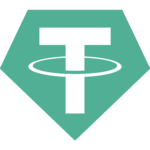The rise of blockchain technology presents a potential paradigm shift not just in the financial sector but across multiple industries. With its promise of decentralization, transparency, and security, blockchain stands poised to disrupt the dominant business models of some of the biggest players in the tech world: Google, Apple, Amazon, and Facebook. Let’s explore how this innovative technology might challenge the status quo of these tech behemoths.
Disruption of Google: Shifting the Paradigm of Data Ownership
Google’s empire is built on data—collecting it, analyzing it, and monetizing it through targeted advertising. Blockchain technology, with its emphasis on data privacy and security, offers a new model where individuals have greater control over their own data. Decentralized applications (DApps) on blockchain can provide similar services to Google (like search, email, and cloud storage) but with the promise that users retain ownership of their data, potentially reducing Google’s grip on the digital advertising market.
Challenging Apple: A New App Store Model
Apple’s App Store is a tightly controlled ecosystem, with Apple acting as the gatekeeper for which apps can be distributed to iOS users. Blockchain technology could introduce a decentralized app store model, where developers can publish their apps directly to users without the need for an intermediary. This would not only lower the barriers to entry for app developers but also challenge Apple’s revenue model, which takes a significant cut from app sales and in-app purchases.
Transforming Amazon: Decentralizing E-commerce
Amazon’s dominance in the e-commerce space could be challenged by blockchain-based marketplaces that operate on a peer-to-peer basis. These decentralized platforms can reduce or eliminate fees for sellers, offer better security for transactions, and provide a more transparent supply chain. By removing the central authority—Amazon—in transactions, blockchain could democratize e-commerce, allowing sellers and buyers to connect directly.
Redefining Facebook: Social Networks with User Control
Facebook’s model is based on collecting user data to sell targeted advertising. Blockchain offers the possibility of social networks where users have control over their data and can choose to monetize it themselves, if at all. A decentralized social network could provide the benefits of connectivity and community without the drawbacks of data mining and privacy invasions. This model would fundamentally disrupt the way Facebook operates, potentially shifting the balance of power back to the users.
Conclusion
While blockchain technology is still in its infancy, its potential to disrupt the business models of Google, Apple, Amazon, and Facebook is significant. By promoting decentralization, enhancing data security, and giving power back to users and creators, blockchain could redefine the tech landscape. As this technology continues to evolve, it will be fascinating to see how these tech giants adapt to the challenges and opportunities it presents.











